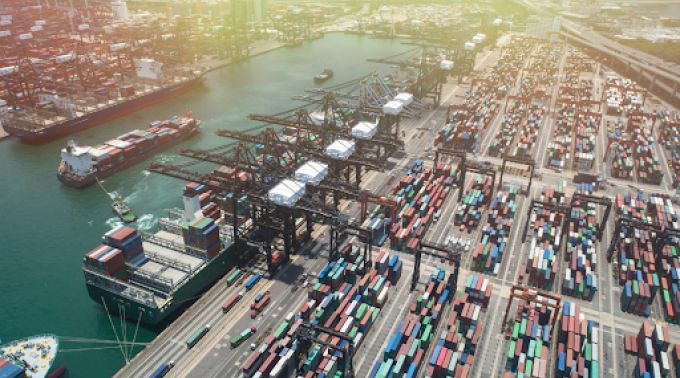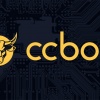
3 Ways Blockchain Enables Traceability In The Consumer Product Supply Chain3 Ways Blockchain Enables Traceability In The Consumer Product Supply Chain Disclaimer: The Industry Talk section features insights by crypto industry players and is not a part of the editorial content of Cryptonews.com.When you purchase some coffee beans from your local grocery store or order a pair of trainers from Amazon.com, you probably don’t consider all of the effort that went into the manufacture of that product. It involved the extraction of numerous materials and ingredients, which wer...
Disclaimer: The Industry Talk section features insights by crypto industry players and is not a part of the editorial content of Cryptonews.com.
When you purchase some coffee beans from your local grocery store or order a pair of trainers from Amazon.com, you probably don’t consider all of the effort that went into the manufacture of that product. It involved the extraction of numerous materials and ingredients, which were then shipped to a factory for processing, being shipped out to distribution centers, and from there shipped out again to the end retailer.
The global supply chain is an intricate system that’s used to gather the materials, produce the products and get them into the hands of customers. It has benefited from an immense amount of technology that enabled it to become so complex, and now it’s adding yet another new innovation.
By combining blockchain with sensors, RFID tags and novel Datamatrix codes, we now have an extremely efficient and accurate way to keep track of products as they move through the different stages of the supply chain. We can understand what their condition was at each stage, such as its temperature, the humidity and the vibrations it was subjected to. This information can be stored immutably on the blockchain, allowing everyone to understand the source of the product and its condition.
Understand The Origin Of Everyday Products
Through its partnership with IBM, the consumer rewards app Shping is now able to offer consumers comprehensive and accurate information about the origin and journey of thousands of different products bought at supermarkets, local stores and other retailers.
Shping is making use of IBM Food Trust, a blockchain-based platform that’s designed to track and trace products from hundreds of global brands. It creates an extensive network that can be used by consumers to trace the journey of almost any product, from its creation to the store in which it is sold.
Shping is primarily a rewards application that allows users to scan any GS1 barcode and learn information about any product, including its nutritional data, pricing and user reviews. The great thing about Shping, besides the handy info it provides, is its incentivized nature. Users are rewarded with SHPING tokens, a kind of cryptocurrency that can be redeemed for real money or exchanged for discounted products. They earn rewards for every product they scan, and can get even more when they buy something and take a photo of the receipt, entitling them to additional discounts.
Its integration with IBM Food Trust takes this experience to the next level. When the user scans a barcode, they’ll be prompted to make a second scan of a GS1 Datamatrix barcode, allowing them to see the product’s traceability data and understand its origin. It traces the full history of each product, from the raw materials used and where they came from, to its transportation and distribution. Throughout the product journey, IBM will record its movements, its temperature during transit and other data.
The system provides multiple benefits, with shoppers finally getting access to full product traceability, while manufacturers get the opportunity to showcase their transparency and demonstrate the quality of their products. Meanwhile, brands can further enhance loyalty and awareness.
Proving Diamonds Are Ethically Sourced
The diamond industry has had more than its fair share of controversy over the years, with reports of diamonds being extracted from war zones, often using child labor, being one of the main challenges. Then, of course, there are numerous fake diamonds in circulation that are sold at prices that far exceed their real value.
Brilliant Earth is aiming to increase transparency and trust in the diamond industry. It promotes itself as a retailer of ethically-sourced diamonds and jewelry and does so by tracking the provenance of precious stones on the Everledger blockchain.
Everledger is fully integrated with Brilliant Earth’s supply chain process, giving buyers a way to securely trace the origins of its diamonds. It provides assurance to customers that its claim to only selling ethical diamonds is valid.
The diamond tracing process starts at the very beginning, with the mine operator verifying the location from which it was sourced. It follows the stones at every step of the way, tracking them as they are sent to be cut into fine diamonds, where they’re polished, how they’re shipped to jewelry manufacturers and finally, to the gem store where it’s sold.
The blockchain records where each diamond has gone, together with documentation including invoices and certificates that prove it has been sourced from responsible operators. It means anyone who buys a diamond from Brilliant Earth can see the full chain of custody.
Brilliant Earth has sold more than 800 blockchain-enabled diamonds. On its website, customers can search for diamonds and filter those that have been recorded onto its distributed ledger. After clicking on an individual stone, the user can view the data that records its chain of custody, together with other insights.
The data includes the diamond’s origin, the region where it was unearthed, and also how the mining industry is benefiting the people who live in that area. It also displays a 360-degree image of the polished diamond.
Enabling a Slavery-Free Chocolate Industry
Chocolate is deliciously sweet, but the cocoa supply chain isn’t always quite so tasteful. In Ghana and Ivory Coast, which produce around 60% of Africa’s annual cocoa bean exports, there have been reports of the industry using child labor and sometimes even slaves.
Most consumers would rather not purchase chocolate bars that were produced in part by modern slaves, and this is the kind of audience that Netherlands-based Tony’s Chocolonely is looking to cater to.
Its mission is to create a slavery-free chocolate industry and to do this, it has partnered with Accenture to create its very own blockchain platform that it uses together with its suppliers in the Ivory Coast.
Tony’s partners include a cocoa farm cooperative called Socoopacdi, and a local trading firm called Ocean, which have implemented the blockchain to ensure the provenance of the chocolate produced by the Dutch company.
To enable blockchain traceability of the origin of its chocolate, Tony’s and Accenture created a web application for its partners to enter data, and an integration service between the app and the blockchain and the cloud-based infrastructure that supports both.
As the cocoa is extracted and processed, Tony’s partners will enter data at different stages, including bean collection, when the beans are sold onto the local trader, and again when they’re passed on to the international trader who supplies Tony’s. Then, once Tony’s processes the beans into chocolate, it’ll record the local merchant it’s sold to. In this way, Tony’s is able to verify each stage, from when the cocoa beans are first picked, all the way until they end up on the shop shelves.
Tony’s was one of the first companies in the world to implement blockchain-based traceability, rolling out its pilot project in 2018.




